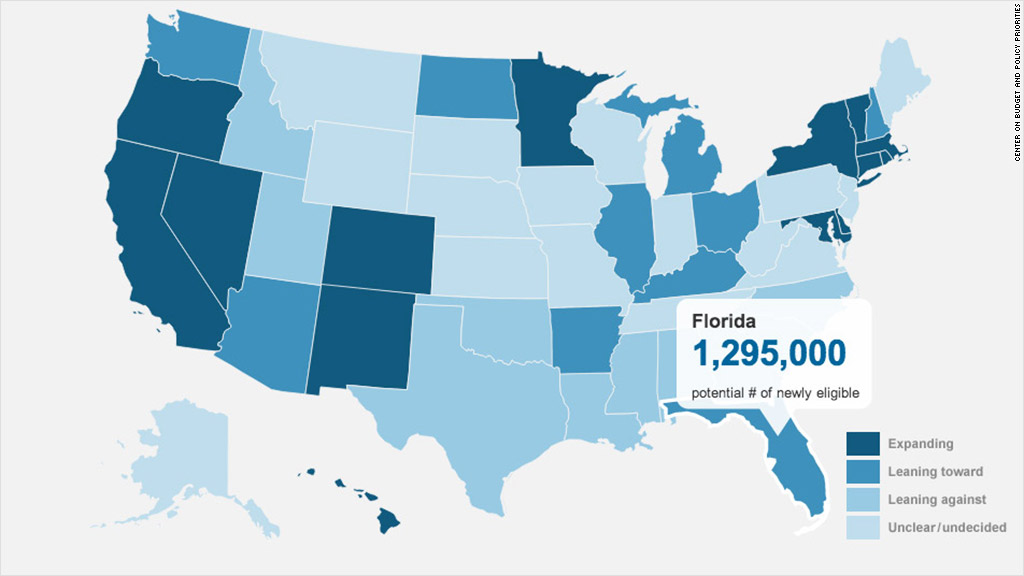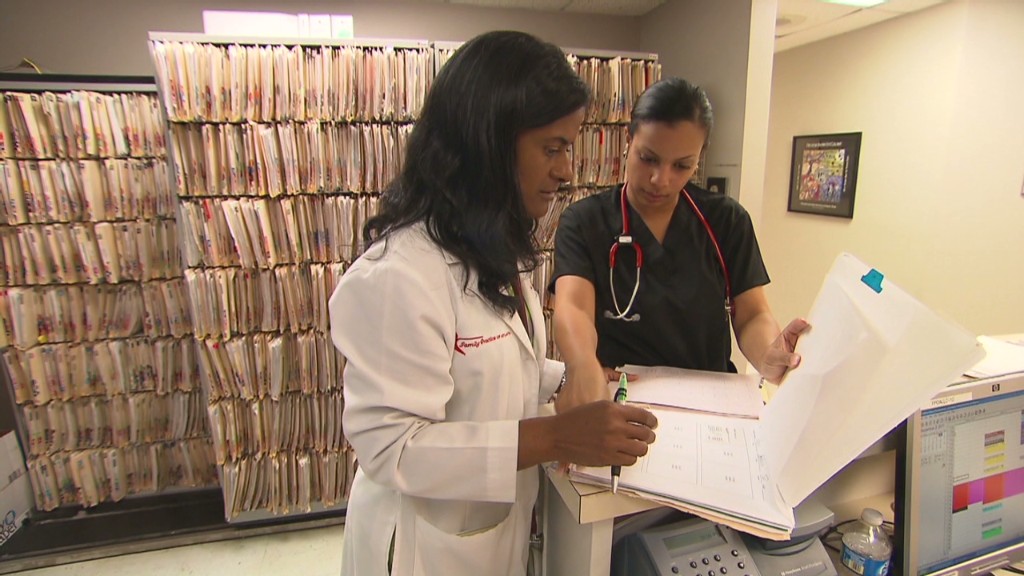
Despite their initial, vehement protests, a growing number of Republican governors are giving their blessing to expanding Medicaid in their states. That opens the door for millions of poor Americans to enroll in government health care coverage, beginning in 2014.
Florida Governor Rick Scott on Wednesday became the latest to warm up to the expansion, which broadens coverage to adults with incomes below 138% of the poverty line. Medicaid rules vary from state to state, but many states (including Florida) do not currently cover most childless, non-disabled and non-elderly adults.
Scott, a former health care executive, follows his GOP peers in Ohio, Michigan, Arizona, New Mexico, Nevada and North Dakota in accepting a reform they once strongly opposed.
The Supreme Court ruled last year that states can opt out of broadening Medicaid coverage, striking down one of the provisions of the Affordable Care Act. Some 15 states have chosen to participate so far, with another 10 leaning towards expansion, according to the Center on Budget and Policy Priorities, a liberal group.
Though many Republican governors say their state can't afford the cost of expansion, the political resolve of some has crumbled over the past two months in the face of heavy pressure from hospital associations, medical groups, local governments and others. Providers -- particularly hospitals, where many uninsured folks go for care -- say their costs of treating those without coverage would fall under the expansion.
"Medicaid expansion is a very good deal that's hard to pass up," said January Angeles, a senior policy analyst at the center. "In a lot of these states, a lot of stakeholders have done a good job making the business case."

Most states will have to shell out very little at first -- in the early years. The federal government will pick up 100% of the cost for the first three years, and then gradually reduce its subsidy to 90% by 2020.
Over the next decade, expanding Medicaid is expected to cost states only another $8 billion, or 0.3% more, that they would have otherwise spent, according to an Urban Institute estimate. Some 14.3 million citizens would be newly eligible if every state enrolled.
Various interest groups have put a full-court press on governors and lawmakers, said Ed Haislmaier, a senior research fellow at the conservative Heritage Foundation, which opposes broadening Medicaid.
"They want to get their hands on that money," he said.
The financial argument helped sway Scott, who still has to convince a Republican-led legislature to sign on. Some 1.3 million adult Floridians would become eligible for Medicaid under the expansion.
"While the federal government is committed to paying 100% of the cost of new people in Medicaid, I cannot, in good conscience, deny the uninsured access to care," he said Wednesday when announcing his decision to participate for three years.
Now that Scott is on board, Texas remains the last big holdout.
Texas has the highest share of uninsured in the nation, at nearly a quarter of residents. Some 1.75 million adults would be newly eligible if the Lone Star State joins in. It stands to gain $25.3 billion in federal funds over four years to insure poor adults, while spending $1.3 billion, according to the Center for Public Policy Priorities, an advocacy group for low-income Texans.
Related: Who covers health care for Texas' uninsured? Taxpayers
On Thursday morning, representatives from counties, hospitals, insurers and other groups discussed coordinating their message to Governor Rick Perry and lawmakers in Austin.
"We are making the case that people are already paying for that care in a fragmented and inefficient manner," said John Hawkins, senior vice president of government relations for the Texas Hospital Association. "We have to tell the story of how the expansion is financed."
Hospitals, for instance, already provide $5 billion a year in uncompensated care. That shortfall gets made up by raising premiums for private patients and levying property or sales taxes on residents in special "hospital districts."
"It's a hidden tax," Hawkins said. Federal funds could cover a significant portion of that.
So far, though, Perry is not convinced.
"The governor's position has not changed," said his spokeswoman, Lucy Nashed. "It would be irresponsible to add more Texans and dump more taxpayer dollars into an unsustainable system that is broken and already consumes a quarter of our budget."


